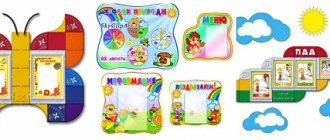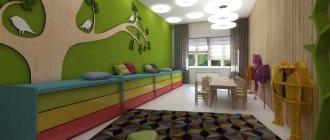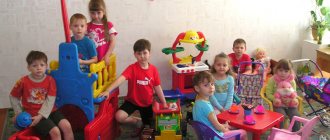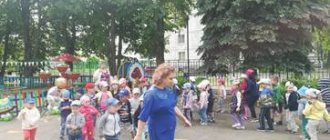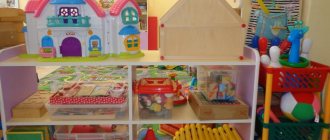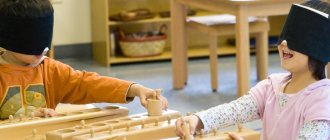What are the benefits of sensory rooms in kindergartens?
Every child in preschool age is particularly active in learning about the world around him, literally absorbing basic knowledge about it. However, the level of effectiveness depends on how varied and rich the baby’s sensory sensations are. Not only its development, but also its mental, physical and emotional components largely depend on this.
One of the best tools today, with the help of which a child will not only benefit, but also learn about the world around him in the most fun and interesting way possible, is a sensory room. In order for the child not only to open up the world in its entirety, but also to understand the essence of what and how is happening in it, it is enough to work with this tool for only a few hours a week.
What is a sensory room for?
It is well known that a person perceives himself and the world around him through receptors, nerve fibers and parts of the brain that react to light, color, sounds, smells and tactile sensations. Therefore, the combination of different stimuli (for example, light, sound or aromatherapy) makes it possible to have a complex effect on the human senses and achieve tremendous success in the development of children of all age categories. At the same time, the use of different sets of stimuli can have both a tonic/stimulating effect and a calming/relaxing effect.
Depending on the age category, the sensory room in kindergarten can be used:
- at an early age (1-3 years) - for the development of general and fine motor skills, the emotional sphere, tactile sensations, observation and attention, as well as the correction of motor disorders, visual coordination, indicative reactions and the enrichment of passive and active vocabulary;
- in preschool age (3-6 years) - for the development of involuntary and logical thinking, higher mental functions (memory, imagination, attention and perception), the emotional sphere, motivation to learn, cognitive interest, as well as learning relaxation skills, increasing resistance to stressful situations and psycho-emotional relief.
Please note that classes in the sensory room can be conducted both in groups and individually. In the case of group classes, the composition of the group is formed based on the needs and physical/psychological/emotional characteristics of each child. Depending on the needs of each group or individual child, classes are conducted in the following areas:
- psychocorrection of the emotional sphere and behavior - aggression and hot temper, isolation and self-doubt, attention deficit disorder and passivity, fears and hyperactivity;
- neuropsychological correction of “school” problems – lack of educational motivation and cognitive interest;
- developmental activities – development of higher mental functions and emotional sphere, achieving psycho-emotional relief, maintaining/restoring psychological health;
- psychotherapy for a wide range of psychoneurological problems.
Do-it-yourself sensory development corner for an early age group
Ekaterina Golovina
Do-it-yourself sensory development corner in an early age group
The sensory development of a small child is a necessary component for his harmonious growth and upbringing. After all, it is in the first years of his life that he is faced with a huge amount of information unfamiliar to him. It is the task of nearby relatives and educators to correctly convey information about subjects to him and help him analyze the rapidly accumulating experience.
In our early development group, we have created a sensory corner where kids will form a personal system of perception of the world.
Consultation for parents “Games for sensory development of children of early preschool age” Sensory development of a child is the development of his perception and the formation of ideas about the external properties of objects: their shape, color, size, etc.
“The problem of sensory development of young children in the research of teachers and psychologists” In the history of preschool pedagogy, at all stages of its development, the problem of sensory education occupied one of the central places. Meaning of touch.
Game-simulator for the sensory development of young children “My World” https://www.maam.ru/detkijsad/sensornajigra moi mir-v-blogan.html. A child’s sensory development is the development of his perception and formation.
A soft tablet is an effective, innovative means of sensory development for young children. We develop through play. The soft tablet is an effective, innovative means of sensory development for young children. Prepared by: Sorokataya.
Psychological and pedagogical features of cognitive, speech and sensory development of young children According to the teachings of D. B. Elkonin, the period of early childhood ranges from one to three years. The period of the first 3 years is the most intensive period.
Sensory development in young children. Do-it-yourself play equipment for sensory development Sensory development (sensory) is the process of forming certain ideas about the properties of objects: their size, shape, color, position. Corner of sensory development Sensory development of children in the second group of early development "Caramel" Zhukovsky MDOU TsRR DS No. 3 Prepared by the teacher:.
Source
Do-it-yourself sensory development corner for an early age group
Irina Bondarenko
Do-it-yourself sensory development corner for an early age group
Bondarenko I. A., Barsukova L. I. DS “Cosmos”
Volgodonsk
The sensory development of a small child is a necessary component for his harmonious growth and upbringing. Sensory development , on the one hand, forms the foundation of the general mental development of the child , on the other hand, has independent significance, since full perception is necessary for the successful education of the child in kindergarten, at school, and for many types of work activities.
In our early development group, we have created a corner where kids will form a personal system of perceiving the world.
Using the presented manuals, kids form ideas about colors (red, yellow, blue, green, etc.), distinguish and define basic geometric shapes, distinguish the concepts of relative quantities: big, small, develop fine motor skills , learn to navigate in space.
Do-it-yourself didactic games for children of early and early preschool age I would like to share my experience in making didactic games with my own hands. I find the necessary pictures on Internet sites and print them out in color. Summary of a lesson in an early age group for Mother's Day “Do-it-yourself gift for mom” Summary of a lesson in an early age group for Mother's Day “Do-it-yourself gift for mom” Purpose: To introduce children to the upcoming holiday “Day. Consultation for parents of children 1.5–3 years old “Didactic games and do-it-yourself aids for the sensory development of a child” Dear mothers and fathers! Please spend a little time to review this information. Read the text to the end and we are sure. Master class for parents “Didactic games as a means of sensory development of young children” Didactic games as a means of sensory development of young children TOPIC: Didactic games as a means of sensory development of children. Decorating an early age group with your own hands Hello colleagues! I would like to present to your attention the design of an early age group. The early age group in kindergarten should. Do-it-yourself panel for the duty corner I would like to share with you how I made my own panel for the duty corner. When I filled out everything necessary for the children to be on duty, I had everything left.
System of sensory development of children of early preschool age The presentation presents material aimed at children acquiring mental work skills and developing their logical thinking. Data.
Essential characteristics of sensory development of young children Based on the data of modern psychology, the practice of education is considered to be sensory (from the Latin sensus, “perception”) as a category that describes.
Do-it-yourself duty corner For children to learn to work, it is necessary to create conditions. A beautiful and interesting duty area in kindergarten will allow children to have fun. Do-it-yourself corner of nature Do-it-yourself corner of nature. A corner of nature in a group preschool educational institution is one of the conditions for visual and effective familiarization with preschool children.
Source
